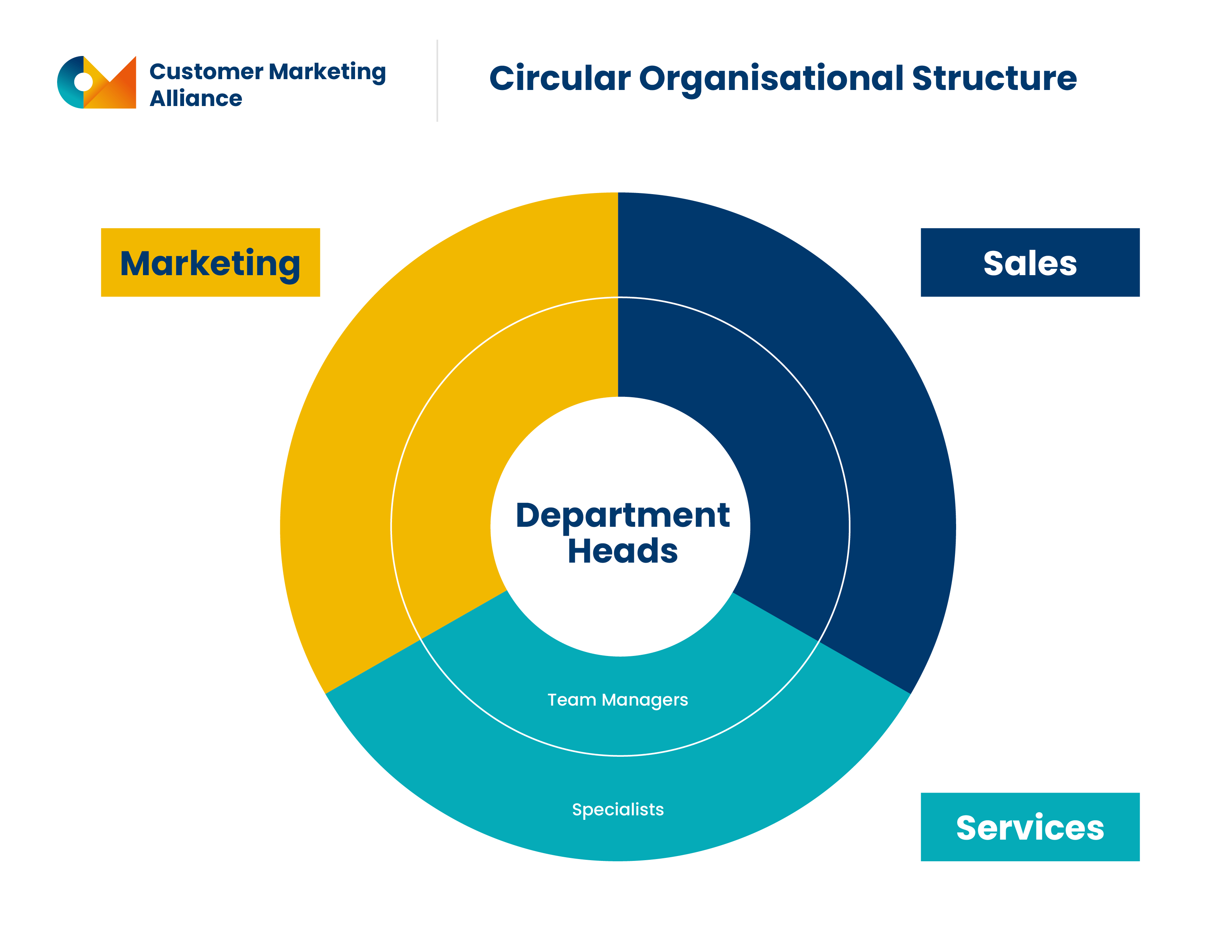Customer marketing is an increasingly popular concept in marketing circles, but what is it exactly? How can these highly customer-centric programs increase customer loyalty, make more sales, and encourage customers to advocate for your brand?
So, with that said, what is customer marketing and why is it so important? We are here to help you with all things customer marketing, but let’s start with the basics.
In this guide, we’ll be looking at the following:
- What customer marketing means.
- The aim of customer marketing.
- Why customer marketing is so important.
- How customer marketing supports business goals.
- Where customer marketing fits in the organizational structure.
- Types of customer marketing strategies.
- How customer marketing is better than other types of marketing.
- How customer marketing can sustain business growth.
What is customer marketing?
So, let’s dive in — what exactly is customer marketing? The truth of the matter is that it really looks quite different depending on an organization, and its internal structure and goals. There are a lot of common threads, though so let’s break it down a little bit further.
Customer marketing: Customer marketing focuses on the marketing and management of a company's existing customer base. They aim to build a long-lasting community of customers and encourage their participation in business events and development.
Their skills lie in turning new customers into advocates who expand and renew their relationship with the business
What is the aim of customer marketing?
Customer marketing aims to: Provide an audience with the types of communications and experiences they need, want, or like as they move from prospects to customers then, ideally, to advocates.
They’re essentially a customer expert and look to influence the overall lifetime value of a customer. They will have a hand in most customer-facing tasks, to ensure that the company's voice is consistent in any interaction. In a nutshell, customer marketing seeks to implement:
- Activity across the customer journey that forges meaningful connections and relationships to drive functions such as customer advocacy, retention, education, community, referrals, and references, as well as driving cross-sell and upsell opportunities.
- Establish clear channels of communication and collaboration between different teams, like sales, product, and customer support.
- Encourage customer-centered alignment across an organization.
Why is customer marketing so important?
Customer marketing has gained such traction as markets become more and more flooded and companies struggle to break through the noise. By fine-tuning an exceptional, personalized customer experience, a business can simultaneously retain its existing customers while hopefully attracting prospects, which is great news for revenue.
Driving down things like churn rate and powering up the average customer lifetime value means that it’s much more cost-effective to work on your existing customer base.
That’s right, a loss that could have been avoided.
Returning customers are over five times more likely to repurchase, and, similarly, are likely to forgive a company error, four times more likely to recommend, and seven times more likely to try out new products. Retention is absolutely crucial.
Coupled with advocacy tactics and programs, this can provide invaluable insights because customers are more likely to leave feedback and complete surveys - giving you more information at your disposal to inform strategy, as well as feeding into overall customer lifetime value, and driving expansion.
Customer marketing will also have a significant role to play in identifying customers for case studies or customer stories — shining the light on their successes with your brand, as well as possibly elements of the onboarding and adoption process.
As customer marketers have such a deep understanding of their customers, tailoring these areas of the customer experience so that they’re as optimized and personal as can be is a key differentiator and also lays the groundwork for successful product adoption and engagement.
The bottom line is: customer marketing grows a business.
How does customer marketing support business goals?
Nowadays, there’s an overwhelming number of choices of stores, products, services and brands. How does a customer pick your product out of a sea of so many others? What makes yours so special?
Customers want to be able to make an easy, simple decision. If they’re too overwhelmed, they may decide to just leave without making a purchase. It's human nature to follow a routine and build habits.
Going with something familiar is a safe bet; customers know what they’re getting and know they’ll like it, so why would they choose something new, scary, and uncertain?
Businesses should aim to increase these types of customers from the get-go. They should also foster relationships with them to ensure everyone’s getting the most out of it. How else can loyal customers help?
- Improved adoption
- Increased purchase rates
- Budget and time saver
- Varied content
- Vital education
- Key communication
- Stellar advocacy
- Improved retention
- Consistent engagement
Improved adoption
Adoption is encouraging a user to understand the value of a product. This applies to both new users and existing users, for example as new features are added.
A good strategy here will encourage users to embrace your offering with open arms, even in the face of alternatives from competitors. As we just mentioned, if onboarding is personalized, frictionless, and engaging, you’re setting your customers up for success early on.
Increased rates of purchase
Loyal customers are far more likely to fully immerse themselves in your business and brand, and buy the new products and services that your business is selling. They take less convincing to buy due to their established trust in your brand and business.
Customers will dip their toes in, and maybe purchase a sample or a product, but they’ll only invest money into your business when they become truly loyal. Experience and familiarity are key. If a customer knows what to expect, i.e., excellent customer service, then they’ll know to choose your business. They won’t even think about going elsewhere if they believe they’ve got the best.
Budget and time saver
When businesses try to acquire new clientele, they need to spend time getting to know and understand their new customers on a deeper level, and create a new buyer persona that’ll fit with the new target customer.
Time spent on this will take money away from other marketing activities. For start-up and mid-size businesses, this is money that is better invested into your current customers who you already know will buy from you (you have a guaranteed revenue stream). There’s no certainty that a new customer will continue to purchase from you and your efforts would have been in vain.
Consistent customer retention and engagement
Customer marketing is important to increase the retention rate while lowering the chances of churn. Having strong relationships with your customers is important for the success of your business.
Existing customers are one of the chief aims of a customer marketer - giving them a memorable, engaging experience that genuinely addresses their pain points and makes their lives better will keep customers coming back for more.
Having a deeper understanding of your customer, as well as what they need and want, will help you to effectively target your marketing activities towards them. In turn, your customers will respond by staying loyal and keep purchasing from you as their needs and wants are fulfilled. They are less likely to go elsewhere.
Improved content, education, communication
This is all about the information that is conveyed to the customer, prior to and post-purchase — this enables them to make calculated and informed decisions.
The key here is building trust and confidence:
- - Are you seen as an authority in your sector?
- - Do you have an understanding of what your customers like to engage with and where?
- - What issues are they having at the moment?
The answers to questions like these make for communications that strike a chord at the right moment.
Stellar advocacy
Having loyal customers pays off big time! Advocates are those customers who are the stalwarts of your brand. Their activity might take a range of forms — testimonials, speaking at events, guest blogging, and a customer story, to name but a few.
A big part of customer marketing is focused on creating social proof for your brand. This includes producing customer success stories, testimonials, and video recordings of happy customers talking about your product to help convince new customers to buy.
The kind of social proof that customer marketing generates can help your sales team close more deals and increase online conversions — whether you are a huge enterprise or a small business.
Loyal customers will shout their praise out to the world, telling friends and family about you and driving sales. Customers are more likely to take the word of a friend or family member than a business, which will be biased.
Use word-of-mouth marketing: These loyal fans will do the hard work for you and are far more likely to give you a genuine and dependable evaluation.
In a very crowded marketplace, social proof is one of the most significant arenas for marketers right now — how customers and advocates talk about you and represent your business is a key differentiating factor.

Where does customer marketing fit in the organizational structure?
Customer marketers are often also at the intersection between product marketing and customer success, shaping conversations to support adoption, as well as gaining important feedback.
The role of the customer marketer is a truly cross-functional, collaborative one.
Customer marketing is usually positioned under marketing (though it can be housed in other areas, such as customer success, product marketing, and demand generation). Customer marketing is focused on areas that pertain to a company's existing customer base.

When we asked out own community where the role of customer marketing sat within their organization, we got a variety of responses. Ayush Sen, Director of Customer Marketing at TELUS Partner Solutions said that her team sites with enterprise solutions:
"Our customer marketing team sits within the Global arm of our Enterprise Solutions team. We collaborate most frequently with our product and sales peers." - Ayush Sen, Director of Customer Marketing at TELUS Partner Solutions
Alternatively, Valeria Gomez, Senior Marketing Manager, Customer Marketing at Zendesk spoke about the more traditional structure within her own ogranization. Her team most commonly works with Product Marketing:
"We definitely work closest with Product Marketing. But we collaborate with the rest of the Marketing organization, Sales & Success, Investors Relations, etc." — Valeria Gomez, Senior Marketing Manager, Customer Marketing at Zendesk

The activities within customer marketing are specifically focused on increasing customer retention, customer advocacy, and overall company growth. They aim to build a long-lasting community of customers and encourage their participation in business events and development.
Their skills lie in turning new customers into loyal ones, aiming to convert them by prioritizing the customer-business relationship.
Customer marketing is all about creating strong, two-way relationships with your customers and engaging with them on a personal level, listening to what they have to say, and giving them a platform to air their opinions.
A strong customer marketing strategy focuses on building trust, encouraging customer loyalty, and leveraging the advocacy of existing happy customers to attract new ones.
While the first step is to focus on retaining your existing customers by providing a great customer experience — and thus increasing sales — customer marketing also involves getting them to advocate for your brand and promote it on your behalf.
Types of customer marketing strategies
There are three main types of customer marketing to consider when you implement a customer marketing strategy for the first time:
- Customer-centric marketing
- Customer retention marketing
- Customer lifecycle marketing
- Customer advocacy marketing
- Customer engagement marketing
- Customer testimonial marketing
Customer-centric marketing
Customer-centric marketing is when you utilize your marketing activities to target existing customers. The entire focal point for your marketing campaigns is the customers who’ll automatically and predictably purchase from you.
Many businesses put a lot of their funding into customer marketing to boost customer retention, reduce churning, and elevate loyalty, advocacy, and support.
This type of marketing is based on cementing strong, stable relationships with your customers. By utilizing what you’ve gleaned from your current customers, you can elevate retention which, in turn, helps to expand the business.

Customer retention marketing
Focusing on customer retention rates — keeping the customers you have — is well regarded as an essential piece of maintaining business growth.
In addition, getting your current customer base to spend more with you, more often, is considered a more cost-effective way of growing your business than attracting new customers through customer acquisition.
The first step is to create happy customers and nurture lasting customer relationships to reduce your churn rate — the rate at which customers stop doing business with you.
This means ensuring you provide the best possible customer experience, give great customer support, listen carefully to customer feedback, and act on it — to improve your products and business. Once you have satisfied those existing customer needs, you can more easily cross-sell and upsell other products to them.
Examples of customer retention strategies
- Free events, workshops, conferences, and webinars on a topic of interest to your current customers that is also tangentially related to what you sell. If you sell bedding, for example, a workshop about sleep may be interesting to your current customers.
- Email marketing focuses on existing customers to give them information about product launches, new features, and current promotions. If you give current customers access to this information before releasing it to the wider public, they feel more valued by your brand and singled out as special.
- Offer promotions that are limited to current customers, such as a higher discount on products if they have purchased from you in the last six months, for example.
Customer lifecycle marketing
Customer lifecycle marketing focuses on personalization. It recognizes that different messaging and strategies work best for customers depending on their stage in the customer journey.
This style of marketing requires an intimate knowledge of each stage in the customer lifecycle, and how it fits in with the products and services you have to offer. Each stage will have different priorities, knowledge, and investment in your business
Customer advocacy marketing
This effective customer marketing approach involves making use of the relationships you build with your existing customers to reach new customers. It is similar to traditional word-of-mouth marketing but makes greater use of social media channels and digital marketing.
The first step in implementing an advocacy marketing strategy is to identify not just satisfied customers, but actual brand advocates, or those that actively engage with, and promote your products and services.
Surveying customers using the Net Promoter System (NPS) you can identify those that score your brand at 9 or 10 (on a 10-point scale) as true advocates. Anyone below that level may require a lot more effort on your part to turn them into a promoter.
You can also identify key customers by monitoring mentions on social media, looking out for five-star reviews, and keeping an eye on who replies to your calls for testimonials and reviews.
These brand advocates are the people you can use for your advocacy marketing efforts. They may be social media influencers with a large following, who actively positively mention your brand on their channels and accounts, or may simply be individual customers who have really been taken with your brand.
But what's the most important thing to building an advocacy program? It's the actual 1-2-1 relationship building you do with every single one of your championed customers. Jeni Asaba, Manager, Community Engagement and Advocacy at Jamf certainly said this the best:
"Allow them to get to know you! While this may sound like a lightweight or fluffy answer – it works. Members of an advocacy program want to know there’s a real human running the program who cares about their success. When you open up, allow customers into your world, and share your ideas (crazy as they may be), they’ll do the same.
“They’ll provide honest feedback, and they’ll be there for you when you need them. They’ll become advocates! Any advocacy program that hopes to achieve success must start by building genuine relationships with customers. So open up, and let them get to know you. It will pay off!" — Jeni Asaba, Manager, Community Engagement and Advocacy at Jamf

Examples of customer advocacy marketing
- Positive user quotes displayed on your landing pages and social media channels.
- Product reviews provided by social media influencers in return for receiving the product prior to the official launch.
- Brand advocates featured in webinars and appearing at conferences on subjects related to your brand.
To encourage your advocates, you can offer incentives such as discounts, early access to new products and features, and enroll them in referral programs. It’s important, however, that your advocacy policy is transparent, and prospective customers should be made aware of the incentives that have been offered in return for recommendations, reviews, and appearances.
Customer engagement marketing
Customer engagement marketing does a little of what it says on the tin; it’s a marketing strategy focusing on increasing engagement between your customers and your business.
While other types of marketing also have this aim, and some of their activities may be the same, this style of marketing is focused on accommodating a variety of ways customers can communicate with your brand.
This involves interacting with customers through email, your website, social media, community forums, etc. While most brands intend to engage with their customers, it’s often difficult for customer marketers to prioritize which parts of the business they should promote next.
An effective customer engagement marketing strategy will not only develop customer interest through storytelling and incentives but will iron out any kinks already present in your system. It’ll show you when, where, who, and how you should be making these connections and can support the marketing process as a whole.

Customer testimonial marketing
Customer testimonial marketing involves using real testimonials from your satisfied customers to encourage new customers to buy. Testimonials are a form of social proof and are effective because hearing about the benefits of your product from a real customer is more believable and authentic than any marketing content or advertisement you put together yourself.
The benefits of using customer testimonials in your marketing are clear:
This is because prospective customers can actually see and hear the person giving the recommendation and are more likely to trust them. Video also provides better customer engagement, with viewers watching for longer than they would read a text testimonial.
How is customer marketing better than other strategies?
Customer marketing is well-known to be a more affordable marketing approach than other, less customer-centric strategies (e.g. generic brand campaigns, marketing content focused on what your company wants to talk about, and traditional advertising to large audiences).
Return on investment (ROI) for customer marketing activities tends to be much higher than for more generalist, and less-targeted marketing.
Keeping your current customers and increasing their spending is a proven way of growing your business without a massive investment. Similarly, using brand advocates to promote your products and services is both more effective and cheaper than traditional advertising, for example.
Affordability can also have a downside, though, and customer marketing managers are often allocated a smaller budget than is ideal, as a result. In these circumstances, marketing managers need to find affordable solutions for their customer marketing efforts, which not only provide significant growth but are also more cost-effective and efficient to implement in the first place.
How can customer marketing sustain business growth?
While there are dedicated teams to the majority of the customer journey, customer marketing addresses an area most often neglected by businesses; existing and loyal customers. There’s a misconception that loyal customers don’t need as much attention or dedicated resources as new or churning customers do, but that’s simply not the case.
A lot of the customer marketer’s job revolves around improving sustainable growth for your business, in both size and revenue. Not only that, but existing customers are also a valuable source of information that can help elevate other marketing departments too.
Converting customers
A large part of their efforts goes into making successful customer conversions, turning one-time customers into returning customers, and loyal customers into brand advocates.
One such task is taking advantage of cross-sell and upsell opportunities. This refers to the act of advertising either a different product or an upgraded version of your product to your existing customers. This is done based on their purchase trends and habits.
The aim is to not come off as too ‘sales-y’ and put your customers off. We’ve got a best practices guide if you’re interested in learning more.
Informing customers
CRM or customer relationship management is another key ingredient to the customer marketing cake. In essence, this is a strategy for improving how customers interact with and experience your brand.
There are a lot of ways to do this, and it’s a part of marketing that overlaps with other departments, such as customer success. CRM can be done through customer support by collecting customer feedback.
Using surveys, focus groups, and customer interviews, customer marketers use this data to monitor customer satisfaction and improve overall experience.
Another way to improve customer-business relationships is by informing your customers of your product through content marketing. This is the process of giving your customers access to learn how to effectively use your product. This reduces the chance of customers churning out of the customer journey if there is a learning curve that comes with using your services, and gets them invested in your brand.

Manage advocacy programs
We have a lot more on advocacy programs, but, at its basics, customer advocacy programs are about turning your customers into raving fans of your business.
This goes a long way to helping customer acquisition, which businesses tend to prioritize. Advocates are the ones who support and promote your business for you. They can be key figures in getting referrals and are good sources for promoting social proof by participating in case studies and testimonials.
Where do you go from here?
So, you’ve read about what customer marketing is and why it is important and you’re now looking to understand what goes into actually implementing it into your existing network.
- 👩🏼🏫 12 modules
- 📙 40+ chapters
- ⏰ 10+ hours
- 📝 Templates & frameworks
- 🔥 6 fireside chats
- 👨🏼💻 100% self-paced
Customer Marketing Certified: Core's the industry standard, the driving force for your success, and the only companion you need for personal and professional growth.
Get industry insights




